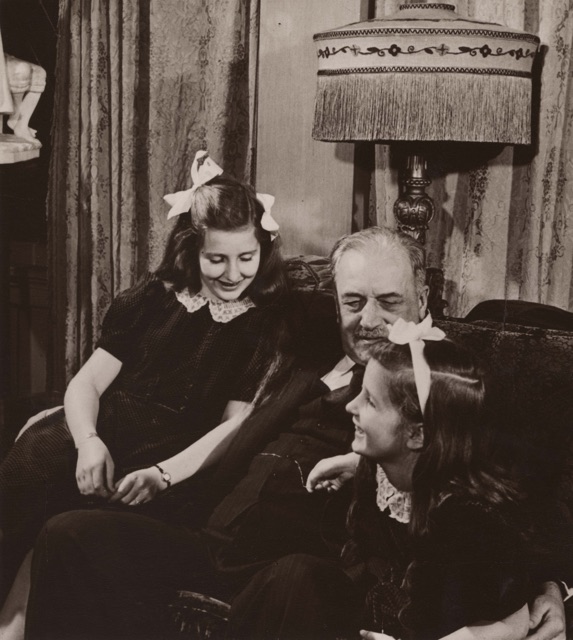
Fall 2025 Newsletter
2023 Fellow Wins Burroughs-Wellcome Award; Researcher Works to Restore Speech Using Neuroprothesis
Nicholas Card, Ph.D, discusses his research project, “An Accurate and Rapidly-Calibrating Speech Neuroprosthesis.”
2023 Fellow Nicholas Card, Ph.D., a neural engineer, received a Career Award from the Burroughs Wellcome Fund. The Career Award at the Scientific Interface supports outstanding early-career researchers who are pioneering new approaches at the intersection of biology and the physical, computational, and mathematical sciences. The award provides $560,000 over five years to bridge the transition from postdoctoral training to an independent faculty role.
Nick is carrying out his postdoctoral research under the mentorship of 2018 Fellow Sergey Stavisky, Ph.D., at the Neuroprosthetics Lab at University of California, Davis. With Sergey and the lab’s co-director David Brandman, M.D, Ph.D., Nick is studying the neural basis of speech and restoring it with a brain-computer interface. Their work, which enables a patient with a severe speech disability to speak nearly intelligibly, was published in Nature in June and has received national press coverage.
Nick’s research helps people with severe speech disabilities, such as patients with brain injuries or neurodegenerative diseases like amyotrophic lateral sclerosis (ALS), to communicate again by using a brain-computer interface that can decode their intended speech directly from their brain. Small electrodes have been surgically implanted into the brain of an ALS patient at UC Davis as part of the BrainGate2 clinical trial. Brain signals are recorded as the patient attempts to speak, and artificial intelligence deciphers the words the patient is trying to say. Those words are played aloud using a text-to-speech tool. The team at UC Davis has successfully decoded what the patient is trying to say with over 98 percent accuracy.
The BrainGate2 research team is seeking to recruit additional participants. As Nick explained, “A controlled research environment is not the same as real-world conversational environments. The participant could start a sentence and not yet know where it’s going to go, or a distracting TV show could be playing in the background. With many sources of variance in real-world conversational environments come more challenges to reaching the same level of accuracy in decoding the participant’s intended speech.” Achieving similar successes with multiple participants will be critical to refining the system so it can be used by others.
To learn more about Nick’s research, watch this video, visit the lab’s website, or read his first-author paper in the New England Journal of Medicine.
2023 Fellow Draws Attention to the Need for Funding for Scientific Research
Sydney Campbell, Ph.D., discusses her research project, “Nutrient Regulation of Hepatic Progenitor Cells.”
2023 Fellow Sydney Campbell, PhD, is a postdoc in Dr. Heather Christofk’s lab at the David Geffen School of Medicine at UCLA. Sydney earned her undergraduate degree at Cornell where she majored in biology and chemistry, and she earned a Ph.D. in cancer biology at the University of Pennsylvania.
Applying skills that she gained through the Foundation’s communications training, Sydney has been advocating for science in the face of recent cuts to federal support for research. Sydney was a speaker at UCLA’s Stand Up for Science Rally in April; she explained to a broad audience the importance of NIH-funded scientific research in helping patients. “As a cancer researcher, I can explain the effect that funding cuts have on our ability to treat patients, especially cancer patients who need more innovative strategies if they are not responding to therapies currently available in the market,” she said. Sydney has led multiple presentations for both scientists and lay people in which she explains why disruptions to scientific funding will harm biomedical research. Sydney credits the foundation’s communications training for helping her to consider her audience and to tailor her communications, including the amount of scientific jargon that she uses, accordingly.
Sydney’s takeaway is that scientists need to make an effort to educate people outside of science to understand how important science is. As for her own research, Sydney studies MAFLD, or metabolic dysfunction associated fatty liver disease, which is the buildup of fat in the livers of individuals with some type of metabolic dysfunction, such as obesity or Type II diabetes. Specifically, Sydney’s research targets hepatic progenitor cells, which are associated with MAFLD, and she’s been examining whether Vitamin C can limit hepatic progenitor cells’ expansion.
“We don’t fully understand the power of nutrients in our diet,” she explained. “I’m studying how vitamin C is affecting the liver specifically at the molecular level.”
Watch the video to learn more about Sydney’s research or visit the Christofk Lab’s website. Contact Sydney directly if you are interested in learning more about advocating for funding for scientific research.
Long-Time Board Member & Granddaughter of A.P. Giannini Passes Away
